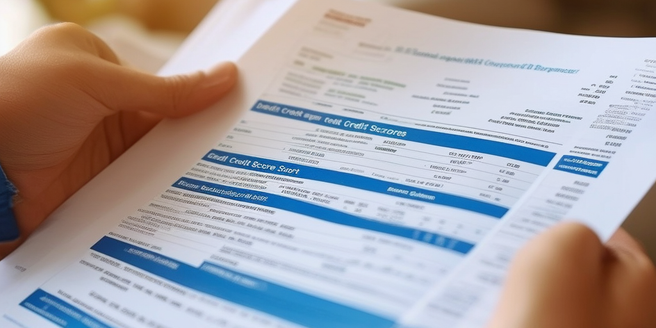Decoding the Basics of FICO Score
The Fair Isaac Corporation (FICO) is renowned for creating the FICO score, a crucial metric for assessing an individual’s financial responsibility. This three-digit figure ranges from 300 to 850, primarily determined by an individual’s credit behavior as documented by three major credit bureaus: Experian, Equifax, and TransUnion. The score plays a vital role in deciding financial matters including borrowing capacity and lending risk for financial institutions. High FICO scores signify lower risk, thus maximizing the likelihood of loan and credit card approval. The score also influences the interest rate lenders charge; higher scores often result in more favorable rates. Importantly, this system is not rigid and can be positively influenced by financial practices like low credit utilization, timely loan repayment, and diverse credit mix. Ultimately, FICO scores are a critical tool for evaluating financial responsibility and creditworthiness, impacting borrowing options and eligibility for preferable interest rates.
How Your FICO Score is Calculated
Your FICO Score, derived from five different attributes, is a critical part of your financial profile. These include 35% payment history, 30% overall credit usage, 15% credit history, 10% credit mix, and 10% new credit. Understanding how each component operates is crucial for effective financial management, as they all impact your FICO score differently. The bulk of the score pertains to your payment history which shows how timely and diligently you’ve been repaying. This is followed by credit usage, credit history, and credit mix, which explore the proportion of your credit line you’ve used, your sustained role in the credit ecosystem, and the diversity of your credit types respectively. Finally, new credit, representing any recent loans or credit lines, constitutes the final 10% of your total FICO score. Comprehending these factors and their correlations lets you manage your credit profile with more foresight and control.
Impacting Factors of Your FICO Score
Your FICO score, a numeric representation of your credit accountability, is influenced by numerous factors that need to be understood for effective management. Negative aspects such as late payments and high debt levels, especially when compared to your income or credit limit, can drastically lower your score. The length and diversity of your credit history also affect your score, with a short history or limited credit types indicating less financial responsibility and lowering your score. On the other hand, positive factors like timely payments, low debt levels, a long and responsibly managed credit history, and a diverse credit portfolio can enhance your score. Understanding these factors is crucial to optimize and maintain a good credit score.
Ways to Improve Your FICO Score
Improving a FICO score is a process requiring time, commitment, and financial discipline, and involves maintaining a record of timely debt repayments, as this indicates reliability and a lower chance of defaulting. Additionally, it’s important to keep credit card balances low since a lower credit utilization ratio suggests responsible credit management, which has a positive effect on the FICO score. Avoiding the habit of taking on new debt is also crucial as this communication you’re reliant on credit and can harm your score, thus managing new credit applications and maintaining financial discipline is crucial. Monitoring credit reports regularly for errors, as inaccurate information such as misattributed debts or incorrectly reported late payments can lead to an undeserved lower score, is key for maintaining the financial reputation and securing a better credit score.
Understanding the Implications of a Bad FICO Score
A poor FICO score can lead to serious repercussions and this impact is crucial to be understood by people navigating the intricate landscape of credit and finances. Its most immediate effect is on the interest rates of loans and credit cards, as lower scores typically yield higher rates, adding an unexpected financial burden. In addition to lending rates, your FICO score influences insurance premiums; insurers use these scores to assess your risk level, potentially leading to more expensive coverage if your score is low.
The influence of a bad FICO score isn’t limited to loans and premiums, it can further affect personal aspects like housing and employment. Landlords and employers may view your credit score as a reflection of your reliability; therefore, a lower score may pose a risk for securing rental agreements or job opportunities.
In conclusion, the wide-reaching consequences of a poor FICO score emphasize it’s importance beyond creditworthiness, impacting various aspects of life, including financial obligations and opportunities. Consequently, the serious nature of this score should not be underestimated, but rather, resources should be devoted to maintain a good FICO score for a more secure financial future.


